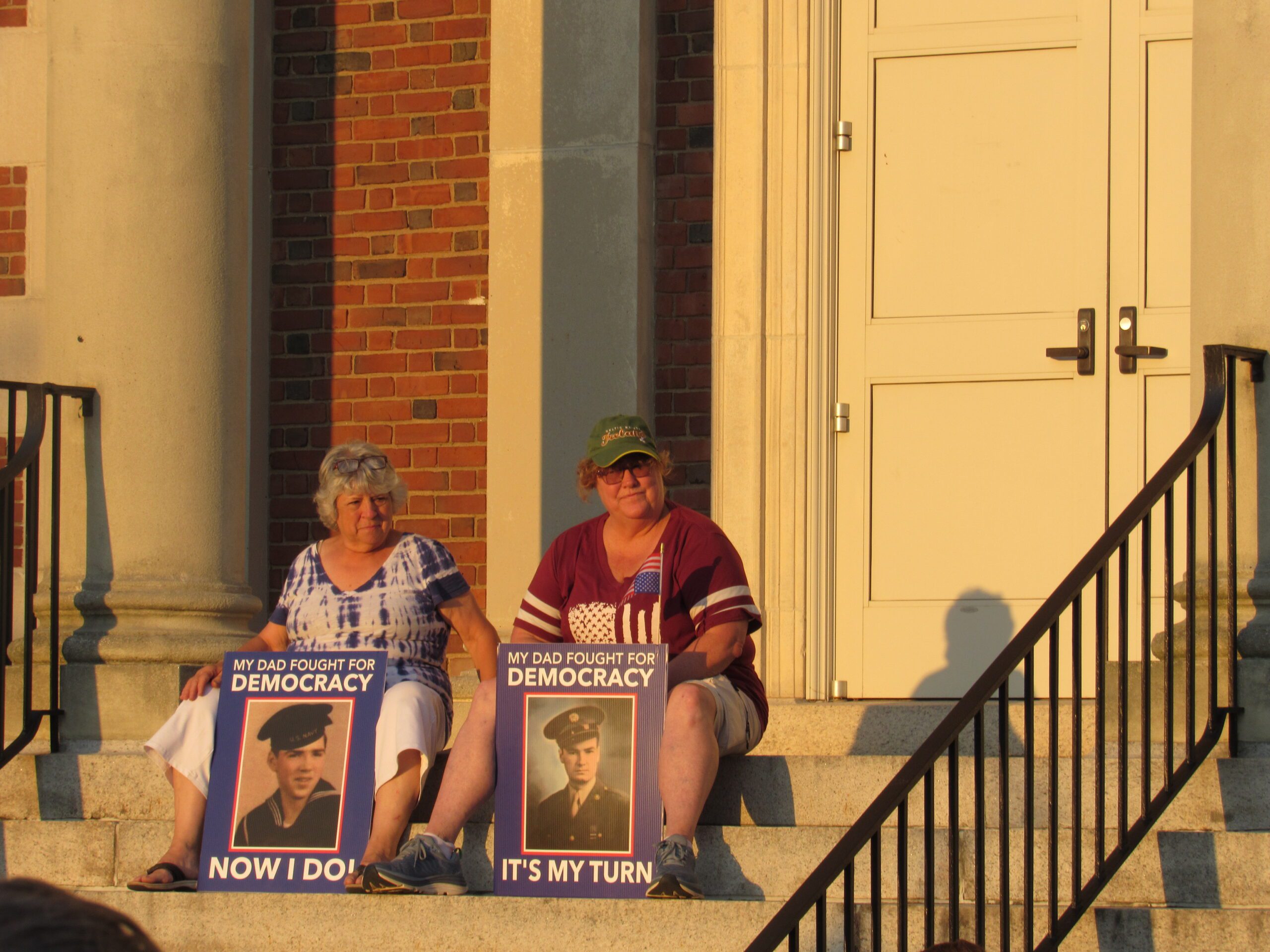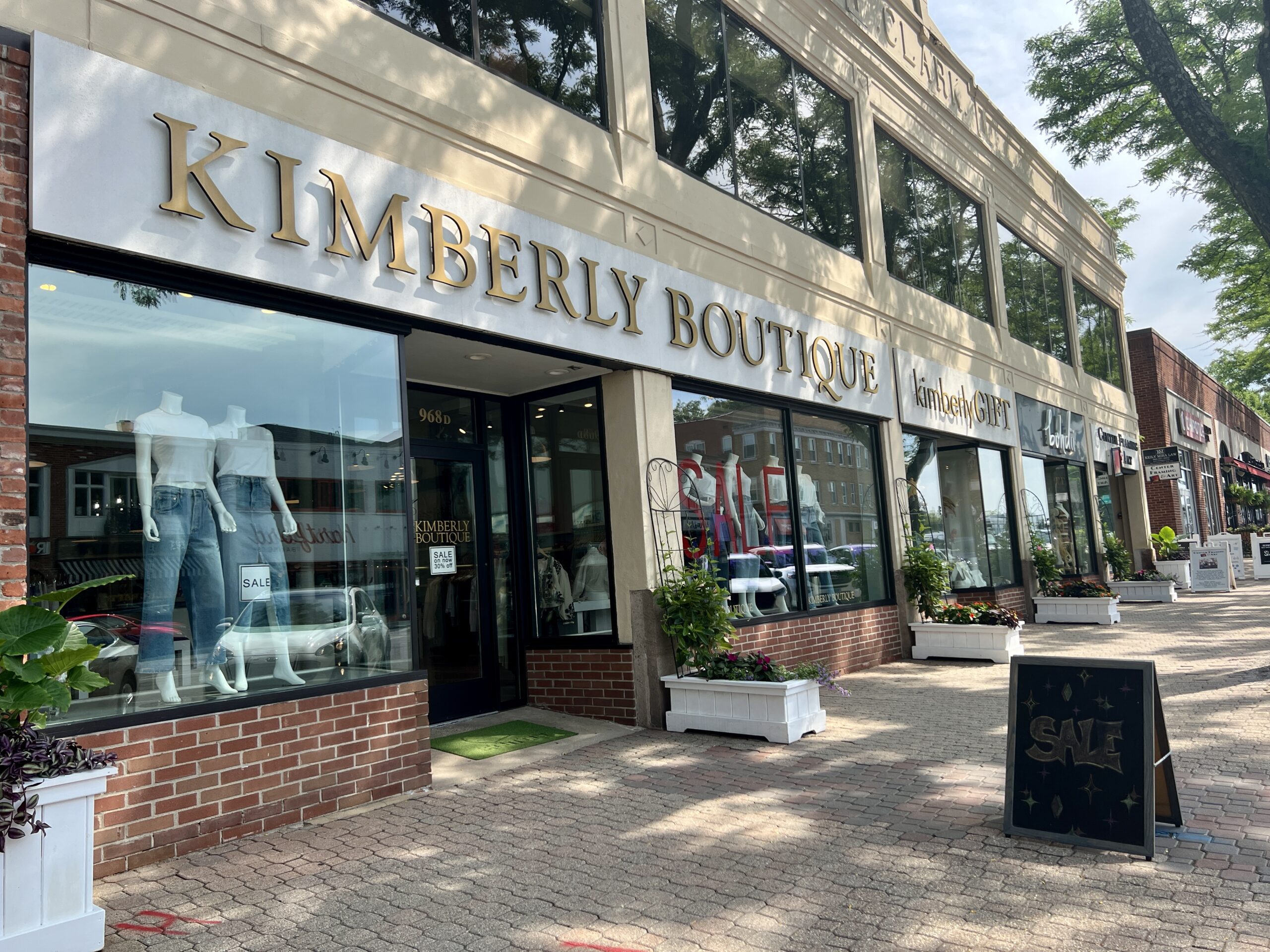Phase 1 of West Hartford Fellowship Housing Will Create 43 New Affordable Units

Audio By Carbonatix
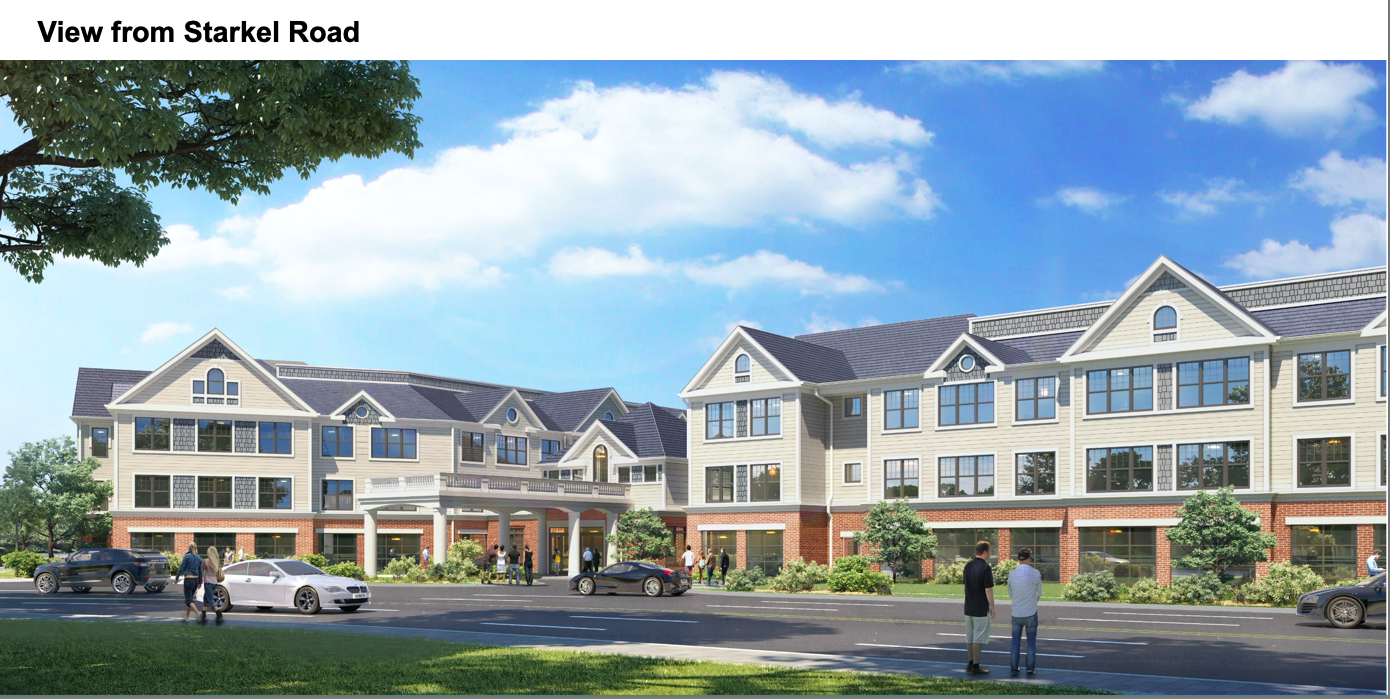
The building on the right I is part of Phase I of the redevelopment of West Hartford Fellowship Housing. Courtesy rendering
The Town Council on Tuesday unanimously approved execution of a new lease with West Hartford Fellowship Housing which will allow the commencement of the first phase of a redevelopment project that will greatly increase the number of affordable housing units in the complex.
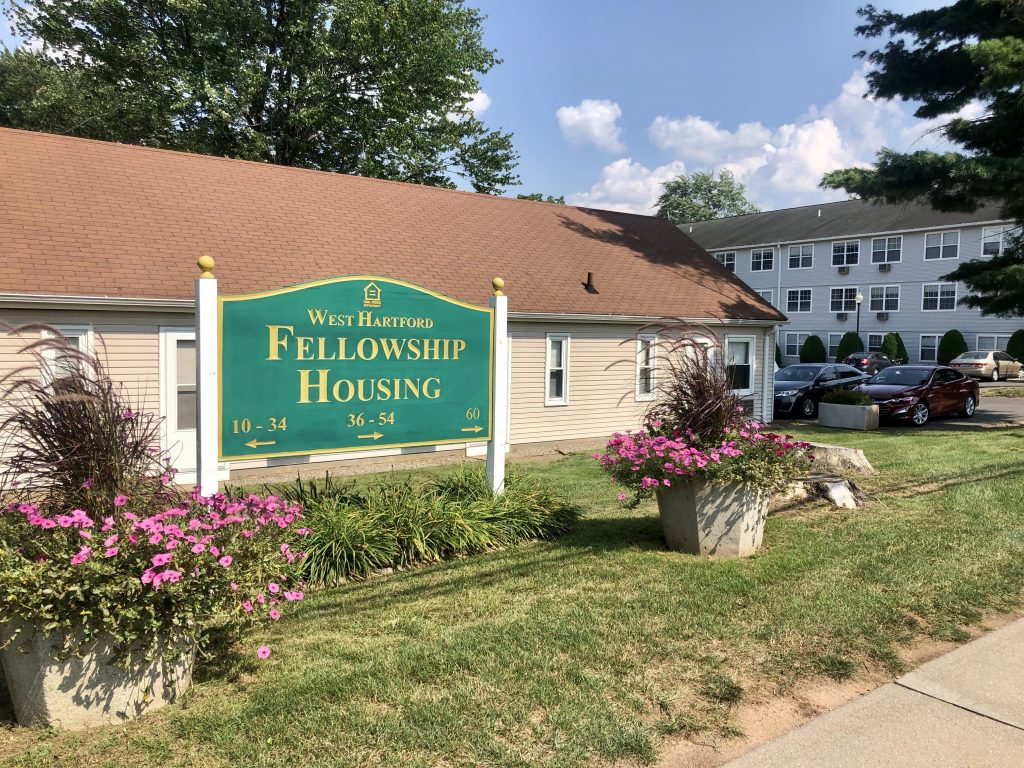
West Hartford Fellowship Housing is located on Starkel Road in Bishops Corner. Photo credit: Ronni Newton (we-ha.com file photo)
By Ronni Newton
The final pieces are now in place to allow West Hartford Fellowship Housing to move forward with plans to redevelop property at 10-50 Starkel Road in Bishops Corner and ultimately increase the total number of units of affordable housing at the site by 95. Including 60 Starkel Road, where 44 units are located in a newer building, the total number of units on the property will increase from 213 to 308.
“This is something that has been a long time coming,” Mayor Shari Cantor said Tuesday before the Town Council unanimously voted to authorize execution of a lease with WHFH Development Corporation for a period not to exceed 99 years. The town owns the Starkel Road property, and as part of the financing a new entity had to be created requiring a new ground lease. “It really has been years and years of commitment to get to this point. Piecing together affordable housing is not an easy task,” Cantor said.
The redevelopment of WHFH has indeed been in the planning stages for many years, and was extensively reviewed, and unanimously approved, by the West Hartford Town Council in September 2019. In May 2022, $1.8 million of federal low income tax credits were awarded to the project, paving the way for an investment of $18 million to help complete the capital stack to fund Phase I of the project.
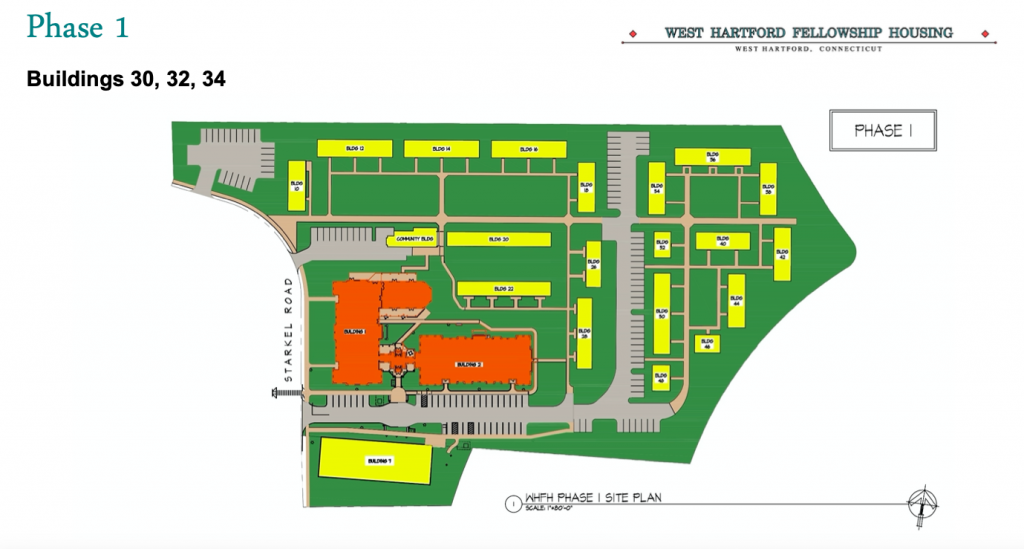
Phase I of the redevelopment of West Hartford Fellowship Housing will result in the demolition of 22 units in three buildings and the construction of 65 units in the new buildings shows in red. Courtesy image
Clare Kindall, president of WHFH Development Corp., said the first phase will add the greatest number of new units. Three buildings, which currently comprise 22 units, will be demolished and 65 new units will be built in two connected buildings along with common areas for use by the residents. All of the units in Phase 1 will be affordable and eligible to be occupied by residents with incomes at 60% of the area median income (AMI) or less. Twenty-six units will be for residents at 50% AMI, and 13 will be for residents at 30% AMI.
Mark Garilli, executive director of West Hartford Fellowship Housing, outlined many of the reasons for redeveloping the property, which include ADA compliance and accessibility. Those who live at West Hartford Fellowship Housing are either over age 65 or have a disability – and according to Garilli 94% of the current residents are over age 60 – yet there are no elevators.
Most of the campus was constructed in 1970, and the layout is not conducive to accessibility, including the location of laundry facilities in a separate building. The apartments are small, have limited resources for connectivity, are not energy efficient, and there is no program space. In addition, Garilli said, there is a need for more affordable housing.
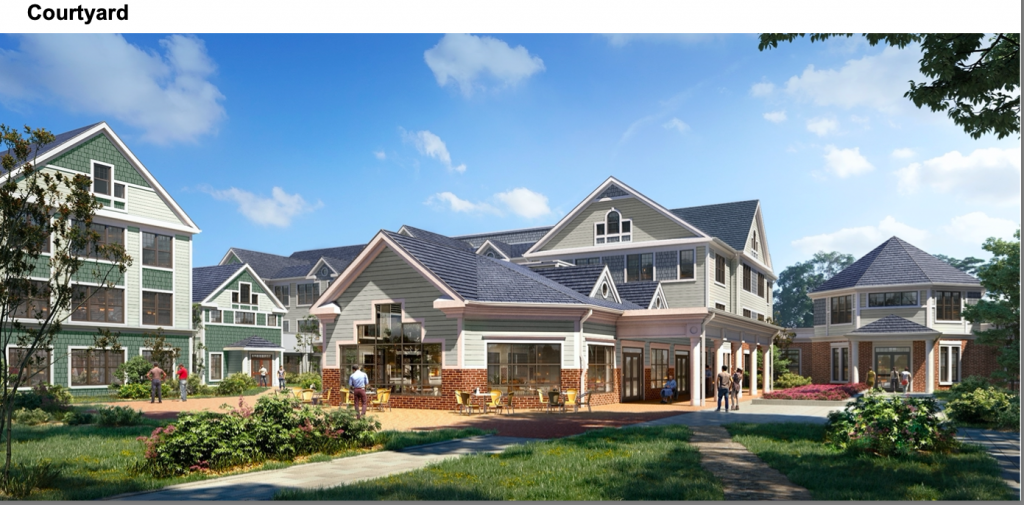
Common areas, including a courtyard, will be part of Phase I of the redevelopment of West Hartford Fellowship Housing. Courtesy rendering
The new buildings will have better insulation, energy-efficient features, community gathering space, first-floor laundry facilities in each building, and plumbing for in-unit washers and dryers. WHFH Development said in an announcement that they are “pursuing every available green initiative, [and] taking full advantage of renewable energy systems, high speed internet and sustainable programming.”
At a public hearing on Jan. 10, as well as in comments to the Town Council this week, Kindall confirmed that all of the residents who currently reside in the buildings being demolished will be relocated, with any moving and other related expenses covered by West Hartford Fellowship Housing. All rents will remain at their current levels as required under the Uniform Relocation Act (URA). Nine residents already been moved to other units on the property as they have become available, and by spring a total of 14 are expected to be moved to other apartments on the campus. Temporary offsite rentals will be found by West Hartford Fellowship Housing for the remainder of the dislocated residents.
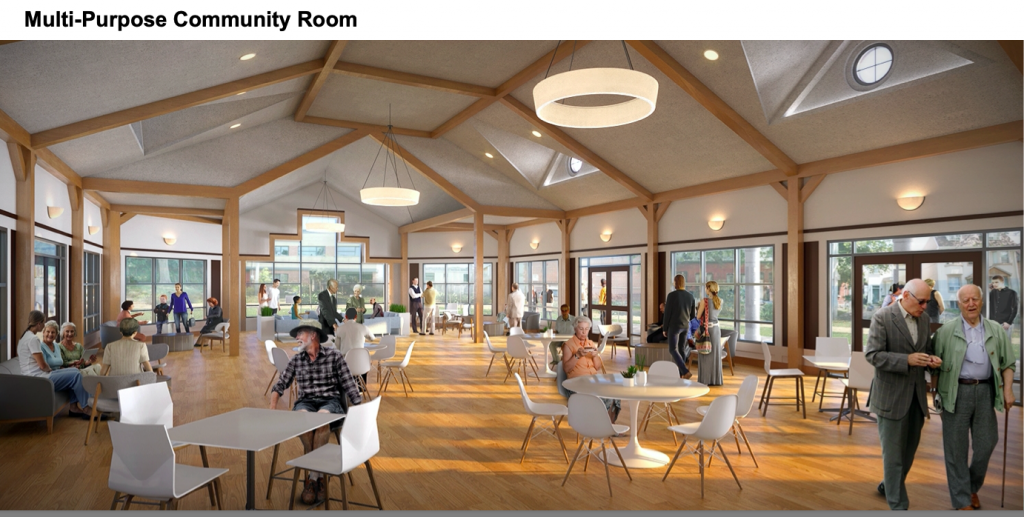
A new multi-purpose community room will be created during Phase 1 of the redevelopment of West Hartford Fellowship Housing. Courtesy rendering
Once the new buildings are completed, those who have been displaced will be given priority to move into those apartments. As the redevelopment moves into future phases, there will be a surplus of units so while residents will have to move, they will have space on the property. Phase II will involve demolition of 59 units and the creation of 75, Phase III will include demolition of 50 existing units and construction of 77 new units in their place, and Phase IV will turn nine units into 39.
Overall, the four phases will result in the demolition of 23 of the property’s 24 buildings and the creation of six new buildings on the 9.04-acre property.
As a separate future project, 60 Starkel Road, which is a newer building, will be updated but the 44 existing units in that building will remain.
Construction is expected to begin this spring, with completion of Phase I expected in the fall of 2024. The project cost is $26.5 million.
The entire property will remain designated as affordable, and the intent is for all of the units at West Hartford Fellowship Housing to be affordable, Kindall said, with rents at or below statutory Low Income Housing Tax Credit (LIHTC) rent maximums.
About 55 years ago the town had the foresight to develop affordable housing for seniors and people with disabilities, Cantor said, but the property has become outdated and having the laundry facilities in a separate building is one of the many challenges. The board of West Hartford Fellowship Housing has been planning for the updates for a very long time, and she noted that the development is not just for the elderly and mobility impaired but for any will disabilities.
“We are grateful to the state for their partnership and the tax credits,” she said before the unanimous vote.
Council members Leon Davidoff and Alberto Cortes, who are members of the West Hartford Fellowship Housing Board of Directors, recused themselves from the vote. Minority Leader Mary Fay, who was absent for the Jan. 10 public hearing, also abstained from voting.
Like what you see here? Click here to subscribe to We-Ha’s newsletter so you’ll always be in the know about what’s happening in West Hartford! Click the blue button below to become a supporter of We-Ha.com and our efforts to continue producing quality journalism.


